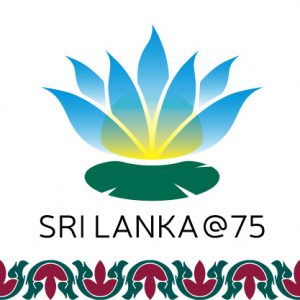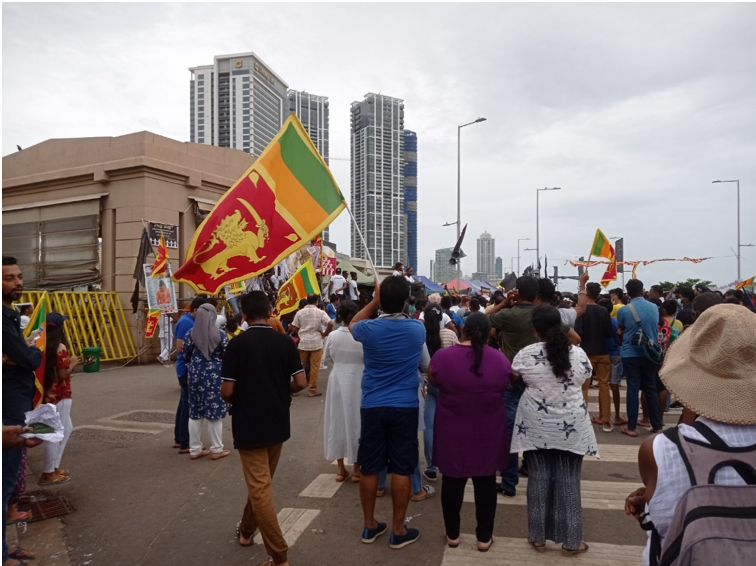 The rise of less tolerant majoritarian democracies across the world has had a predictable, statist concern with historical knowledge, and attempts to control the writing of the nation’s History. Shamara Wettimuny examines the details and implications of the recent Online Safety Bill for the writing of history, indeed for the very discipline of History and historical knowledge, in Sri Lanka as it marks its 75th anniversary of independence.
The rise of less tolerant majoritarian democracies across the world has had a predictable, statist concern with historical knowledge, and attempts to control the writing of the nation’s History. Shamara Wettimuny examines the details and implications of the recent Online Safety Bill for the writing of history, indeed for the very discipline of History and historical knowledge, in Sri Lanka as it marks its 75th anniversary of independence.
The Sri Lankan government recently proposed an Online Safety Bill with the aim of criminalising a variety of so-called ‘prohibited statements’. If enacted, the new law will seriously threaten academic freedom in Sri Lanka; ‘History’, as an academic discipline, will be among its many casualties.
Globally, the state of academic freedom is in decline, and Sri Lanka is ranked among the bottom 30–40 per cent of countries in the Academic Freedom Index. History is a particularly politicised and vulnerable discipline. For example, the Network of Concerned Historians, which documents the ‘censorship of history and the persecution of its producers’, recently published a report on the extent of murder, imprisonment and punishment of history producers across the world. Ruben Zeeman refers to the way in which ‘those in power [attempt] to limit historical research and teaching to those subjects and perspectives that in some capacity function as a foundational element of their legitimacy’.
Sri Lanka is no exception to this tendency. For years, the state has controlled how history is taught, memorialised and commemorated.
So, what would the proposed Online Safety Bill have to do with the already threatened discipline of history in Sri Lanka? The Bill seeks to criminalise the communication of ‘false statements’ that promote ‘ill-will or hostility’ between different communities in the country. A person found guilty of this offence can be imprisoned for a term of up to five years. The Bill would also establish an Online Safety Commission, which would be composed exclusively of appointments made by the President of Sri Lanka. This Commission would preside over what is true or false, and order individuals to stop the communication of ‘false statements’. Failure to comply would result in criminal liability. This new regime for policing ‘false statements’ online would have an enormous effect on how History is studied, taught, written, and indeed contested in Sri Lanka.
History-writing involves a process of adding to an existing corpus of knowledge to make sense of the past and the present. Nira Wickramasinghe says that ‘history is constantly being rewritten when new data and interpretations are incorporated into the composite matter that constitute it.’ When the discipline of History first became professionalised in the nineteenth century, especially in the West and its institutions, the type of History that was written focused largely on high politics, important statesmen and religious institutions. Even within Sri Lanka’s non-professional historical-writing, early written narratives such as those in the Mahāvaṃsa and the Cūḷavaṃsa featured much of the same content — stories of great kings, their wars and great deeds, and religion. This is the sort of history that is featured in Sri Lanka’s History textbooks.
Yet History is not only about telling the majority or the powerful what they want to hear. Instead, as the discipline of History developed, new approaches to history-writing emerged — and several of these attempted to give voice to the voiceless, re-centre narratives that sat at the periphery, and shine new light on marginalised peoples. Research on gender, the underclass, the colonised, and the decolonised are just a few examples from the vast breadth of history-writing that exists today, and is continually being written. Historical research is about contesting received narratives and beliefs and using new evidence to answer previously unasked questions.
When it comes to the discipline of History, what is seen as ‘false’ today may, through academic rigour, be accepted as accurate tomorrow — while what is taken as ‘true’ or ‘real’ History today may be nuanced or shifted as inaccurate or incomplete in the future. There is no way to contest ‘accepted’ history without attracting the ire of those invested in such canons. Ethnic and religious sentiments — or sentimentalities — will invariably be offended, and allegations that the writing of alternative history produces ‘ill-will’ or ‘hostility’ will inevitably emerge.
My lived experience as a Sri Lankan historian certainly speaks to my fear of the Online Safety Bill and what it represents. My doctoral research examined the long history of ethno-religious violence in Sri Lanka between 1853 and 1915, and the evolution of ethnic and religious labels and group identities. On one early occasion, during a lecture in Kandy, I was publicly accosted by a senior person in the audience for my framing of the 1915 anti-Muslim violence as a ‘pogrom’. ‘We were told growing up that this was merely a Sinhala–Muslim confrontation, and you are changing the facts!’ cautioned this person, whose professional background incidentally was in Medicine rather than History.
I also recall the online reaction to a short article I published in History Workshop, a digital ‘radical history’ magazine. The article was titled ‘The Colonial History of Islamophobic Slurs’ and explored the colonial origins of derogatory terms used to refer to Muslims in Sri Lanka. The responses to the article included reminders that ‘Sri Lanka is a Buddhist country’ and that I was a ‘liberal cat’s paw’, ‘trying to change the real history of Sri Lanka’. One commentor lamented that Sri Lanka is a country in which speaking the ‘truth’ gets one labelled ‘racist’, and that the culture in which ‘the majority is being silenced by the minority will never have a good ending for either side’. These are just two examples of how historians may be accused of spreading falsehoods that cause ‘ill-will’ and ‘hostility’.
Of course, encountering such resistance is part of the role of the historian and confronting even the most absurd accusations with restraint comes with the job. Generations of Sri Lankan historians, such as post-Independence Marxist historians like Kumari Jayawardena, have produced new research that contest dominant narratives including those espoused by the state. As part of this process, research and archival material are increasingly made available online in open access journal articles, blogs such as this one, and digital collections. But with the proposed Online Safety Bill, the risk is not merely public confrontation and abuse, but actual criminal liability. This Bill will almost certainly encourage defenders of so-called ‘true’ or ‘real’ History to file complaints against historians who dare contest orthodoxies. The discipline of History, as we know it, could be forever changed in Sri Lanka.
In The Idea of History (1946), R.G. Collingwood emphasises the autonomy of the historian. He defines such autonomy as ‘the condition of being one’s own authority, making statements or taking action on one’s own initiative and not because those statements or actions are authorized or prescribed by anyone else’. In contrast to such autonomy, the proposed Online Safety Bill will facilitate the prescription of History. It will compel historians to self-censor, and silence the alternative or marginal. Such a law threatens to be yet another tool in the repressive arsenal of a state determined to dictate who and what is considered worth preserving as Sri Lanka’s history.
*
The views expressed here are those of the author and do not represent the views of the ‘South Asia @ LSE’ blog, the LSE South Asia Centre or the London School of Economics and Political Science. Please click here for our Comments Policy.
This blogpost may not be reposted by anyone without prior written consent of LSE South Asia Centre; please e-mail southasia@lse.ac.uk for permission.
Banner image © Markus Winkler, 2020, Unsplash.
The ‘Sri Lanka @ 75’ logo is copyrighted by the LSE South Asia Centre, and may not be used by anyone for any purpose. It shows the national flower of Sri Lanka, the Water Lily (Nymphaeaceae), framed in a graphic design of colours derived from the national flag, and sacral architectural motifs. The logo has been designed by Oroon Das.
*







